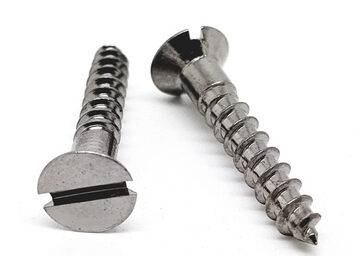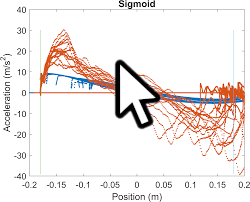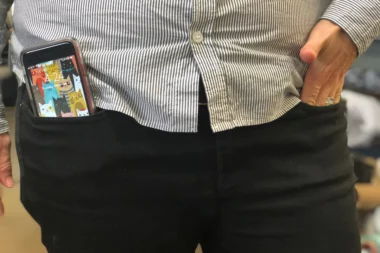
1. slot screws
In the beginning of the 19th century, screws started to be mass-produced and usage became widespread. It wasn't until the end of the 19th century, that drives other than the slot drive could be easily machined on the screw head. By the beginning of the 20th century the Hex and Philips drive became popular. Finally there was no reason to use the vastly inferior slot drive anymore.
The slot drive slips easily. It can't handle much torque. It has extremely poor grip if the driver mismatches. It deforms easily such that it becomes unusable almost instantly. It is virtually impossible to use safely with power tools. Regardless, people didn't really cease to use slot screws until the 1990s or so. And you can even still buy them today. Although they should have been outlawed a long time ago.
Can you imagine that manufacturers had modern plastics easily and readily available since the 1950?; but from 1950 to 2010 - for no reason at all - they would still choose to insulate electrical wires with cotton weave and natural latex rubber. So that common wires in houses and appliances can't handle much wear and tear, do short out more often and sometimes easily burn up in flames. Just like 200 years ago.
All damn right this would be considered a crime. A crime against people themselves.

2. pointer acceleration
When drawing on a piece of paper, did you ever get bored of the fact that the pen draws exactly wherever your hand moves it to be?
Maybe it could be different, yes, it could be even better than this! Imagine, you moved your hand 10cm to the right. But the pen wouldn't always just move 10cm. It would instead move an near-unpredictable amount each time, which is determined by a logarithmic function with linear cutoff thresholds - mixed with other functions of mysterious polynomial qualities - that have half a dozen of input variables and totally change upside down if you switch the paper or pen or do things ever so slightly differently. You move it 10cm, it moves 5cm, or 6cm, or sometimes 9cm. Because it is better this way, more accurate. How you really desire it to be. You just don't know it yet.
Pointer acceleration will be the next big thing in VR camera control. It will as well be forever enabled as default.

3. missing margins
Have you ever wondered why the screws always break through at the other side of the wood? Or why your groceries don't fit into the cupboard by only a few millimeters? This is because we only manufacture screws to be exactly 2cm long and wooden boards to be exactly 2cm thick. And the holes in your cupboard are exactly 5cm apart, not accounting for the thickness of the board, while all items are normed to be 10cm or 15cm tall. It is because no one gives a damn about such details. Why should they? Because it would be sensible? Hell no. It may take centuries for the industry to adopt such changes.

4. tiny pockets in women's pants
Originally a remnant of the patriarchy, to limit the amount of money women could carry with them and spend, small to non-existent pockets in women's pants have since then been repurposed by the fashion industry to serve other nefarious purposes. Some speculate that they just want to sell more gloves and handbags. But if you ask me, they have been colluding with other industry, such as locksmiths and smartphone manufacturers. Up to this day, millions of phones have been needlessly destroyed by slipping out of miniature pockets in this form of passive-aggressive vandalism. But also banks and retail directly profit from lost or stolen handbags, charging exorbitant sums for replacement cards, and increasing sales from purchases made with stolen credit cards. Such cases of female oppression and exploitation provide clear evidence, that we don't have enough feminism to improve even the tiniest facets of our lives.